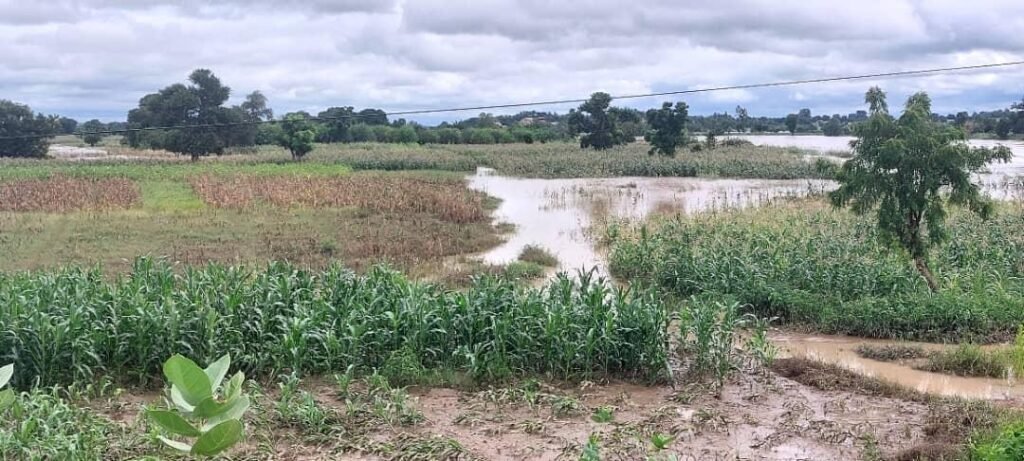ARTICLE AD
Torrential rains this week have wreaked havoc in the Bawku West District of the Upper East Region, devastating numerous farmlands in more than 20 communities in the area.
The hardest hit are the farmlands in the lowlands, particularly those along the White Volta River.
Although some houses were partly submerged, the residents have not been displaced.
 Crops on farmlands in Zebilla submerged following recent torrential rains in Upper East
Crops on farmlands in Zebilla submerged following recent torrential rains in Upper East
Communities from Sapeliga to Gogo, Kobori, Yarugu, Timonde, Tanga, Tanga-Kpalsagu, Boya, and Boya-Kpalsaku have all been affected by the recent flood.
Other communities, such as Kopela, Dagunga, Zongo-Ire, and Zamballa—a community on the boundary with the Nabdam District—were not left out in the devastation.
About 65 communities in Zebilla, within the Bawku West District, are surrounded by the White Volta River, making them increasingly vulnerable to unpredictable floods.
Other areas in the region, including Pwalugu in the Talensi District, Wiesi in the Builsa South District, and parts of Sakoti in the Nabdam District, have also been severely affected.
Residents have expressed concerns that the floods could transform some communities into swamps and have called on the government and other stakeholders to implement tougher measures to alleviate the situation.
When contacted, the Director of the National Disaster Management Organisation (NADMO) in the Bawku West District, Amos Nderago, acknowledged the impact of the heavy rains, but dismissed media reports suggesting that the issue was triggered by the spillage of the Bagre Dam on Monday.
Mr Nderago lamented the significant impact of the floods, which have severely affected many farmlands.
He stated that the organisation had been closely monitoring the situation and had advised farmers in the lowlands to evacuate.
Residents living near the White Volta have also been advised to temporarily move to higher ground for their safety.
“We are still assessing the impact of the disaster and will soon release a comprehensive report on it,” Mr Nderago.
Meanwhile, some farmers whose crops have been submerged under water told the Ghanaian Times that the highlands were not as fertile for crop cultivation as the lowlands.
Additionally, they said they lack access to productive farmlands and were financially unable to afford fertilisers.
The affected farmers acknowledged that they had been taking risks with their lives, but with limited resources, they continue to farm along the riverbanks, where they could achieve bumper harvests with minimal investment.
They said they had always prepared for such events and relied on divine intervention to help them through these disasters.
“Sometimes, we manage to mitigate the effects of the torrential rains by harvesting earlier before the spillage of the Bagre Dam and the onset of heavy downpours,” the farmers told the Ghanaian Times in their local dialect, Kusaal.
The torrential rains comes over days, after the Ghanaian Times reported the severity of the dry spell particularly in the northern part of the country and the middle belt.
Farmers in areas such as Techiman, Kintampo, and Nkoranza in the Bono Region, as well as some parts of the Volta and Greater Accra regions had been grappling with little to no rain for the past two months, leading to crop failures and left many farmers distraught.
Some farmers have experienced significant losses, with large maize and rice farms drying up due to lack of rain.
FROM FRANCIS DABRE DABANG, ZEBILLA

 3 months ago
10
3 months ago
10 

